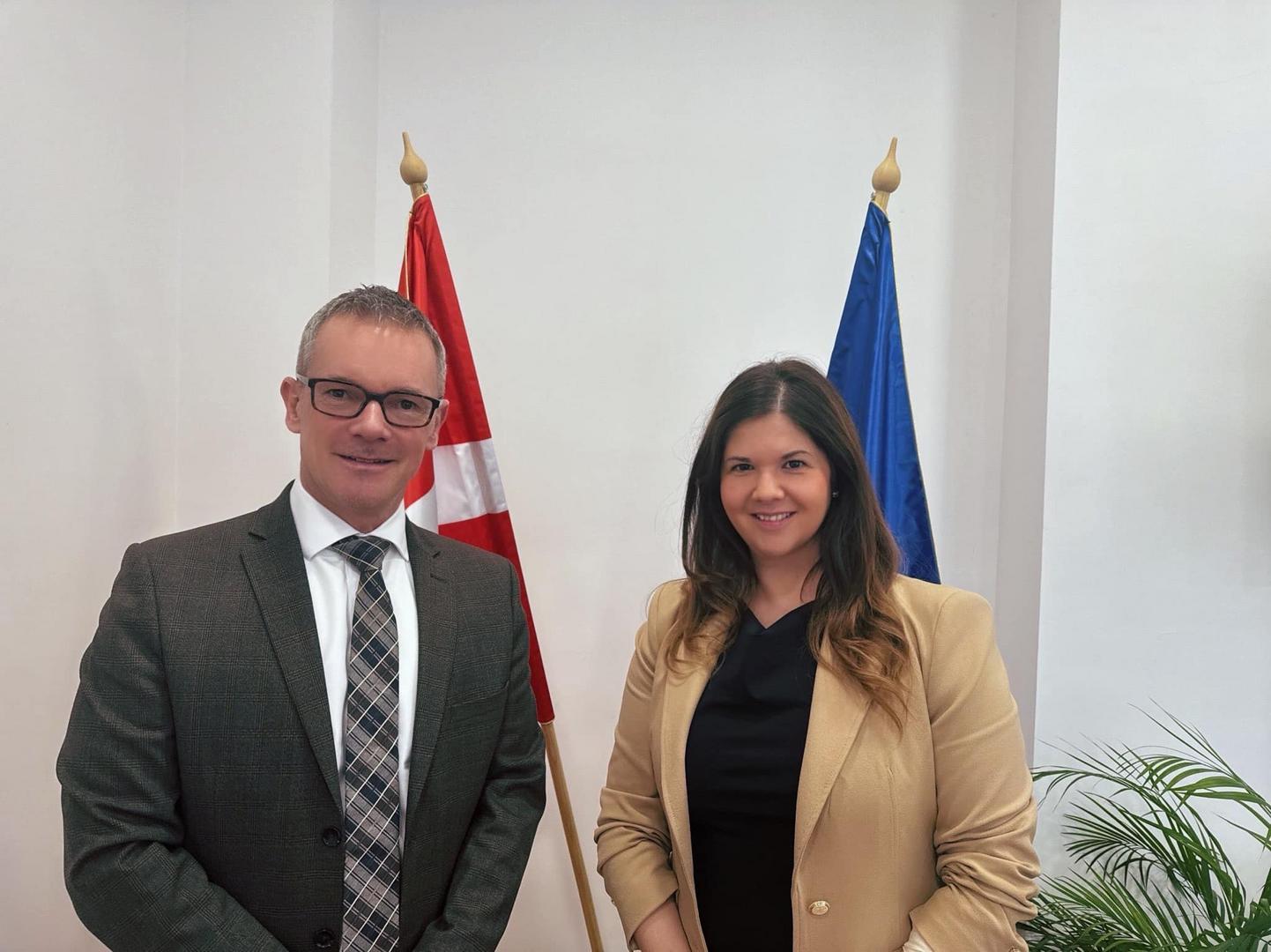
As of 1 July 2025, Denmark will assume the Presidency of the Council of the European Union, joining the Polish–Danish–Cypriot trio that follows the Hungarian Presidency. This trio implements a joint programme for the period from 1 January 2025 to 30 June 2026, aiming to address the EU’s strategic and geopolitical challenges.
On 5 March, Bernadett Petri, head of Europe Strategy Research Institute, held a meeting with H.E. Mr. Christian Thorning, Ambassador of Denmark to Hungary. During the meeting, Dr. Petri presented Ambassador Thorning with a copy of the volume Hungarian Presidency 2024, edited by the research institute as part of the University of Public Service’s EU Presidency Strategy realised in cooperation with the Ministry for European Union Affairs. The volume outlines the policy priorities of the Hungarian EU Presidency.
The discussion focused on policy areas of common interest that feature on the agendas of both the Hungarian and Danish Presidencies. Key topics included the regulation and application of artificial intelligence, developments in health policy, challenges in agricultural policy, the energy transition, current trends in defence policy, EU enlargement, and migration management.
The upcoming Danish Presidency is expected to place particular emphasis on energy security and the green transition. In this context, Denmark plans to launch the implementation of the Electrification Action Plan, and will underline the importance of achieving affordable and reliable energy prices to enhance competitiveness.
Migration and border protection were also discussed during the meeting. Both Hungary and Denmark are committed to strict migration policies, supporting stronger external border protection and the reinforcement of legal migration channels.
The meeting served as a foundation for future Hungarian–Danish academic and policy dialogues in strategic areas where presidency priorities align. Our research institute remains committed to supporting these efforts by fostering knowledge exchange and policy dialogue during the transition between EU presidencies.